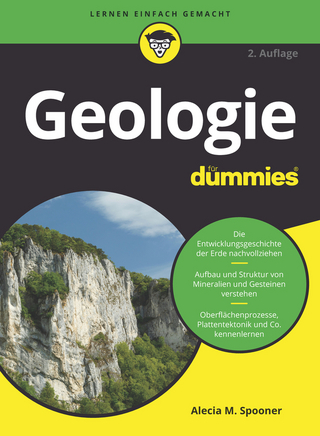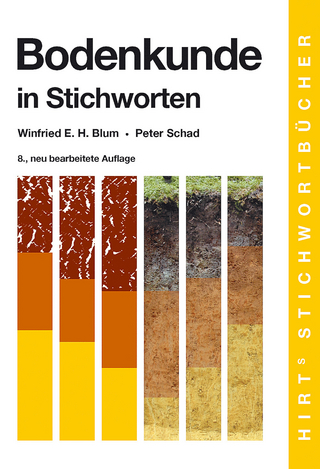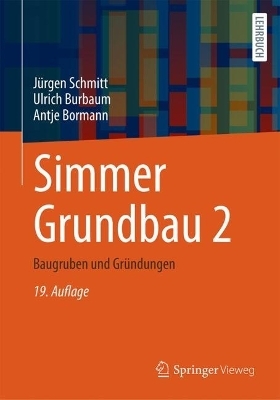
The Cenozoic Southern Ocean
American Geophysical Union (Verlag)
978-0-87590-416-0 (ISBN)
- Titel z.Zt. nicht lieferbar
- Versandkostenfrei innerhalb Deutschlands
- Auch auf Rechnung
- Verfügbarkeit in der Filiale vor Ort prüfen
- Artikel merken
Ocean circulation and hence global climate are nowhere more strongly changed than through the opening or closing of gateways or seaways that link major oceans. The break-up of Gondwana, and the northward flight of its continental fragments from Antarctica, is a case in point. Profound climatic consequences resulted from shifts in ocean and atmospheric circulation due to drastic changes in global geography.
During the Cenozoic, the northward flight of southern continents led to the opening of gateways at southern high latitudes while progressively restricting and closing gateways in the low latitudes. Considerable previous research has dealt with the opening and expansion of the two Cenozoic gateways—the Tasmanian Gateway south of Australia and the Drake Passage south of America—which allowed the Antarctic Circumpolar Current (ACC) to develop and progressively isolate Antarctica thermally. It is generally accepted that full opening of the Tasmanian Gateway occurred earlier than that of Drake Passage, although the time of opening of Drake Passage remains controversial. It has long been proposed that a climatic threshold leading to major initial Antarctic ice sheet accumulation occurred during the Eocene-Oligocene transition as the Tasmanian Gateway opened, triggering ACC formation and resultant thermal isolation of the Antarctic continent (Gateway Hypothesis). South of Australia, Paleogene rifting slowly opened the Australo-Antarctic Gulf, but the Indian and Pacific Oceans remained separated by the Tasmanian land bridge until the latest Eocene, preventing earlier development of the ACC; waters derived from low latitudes efficiently transported heat towards the Antarctic continent, contributing to the maintenance of global greenhouse conditions. Early ocean drilling in the Tasmanian Gateway between Australia and Antarctica provided a basic framework of paleoenvironmental changes associated with the opening, but stratigraphic resolution was too limited to fully test potential interrelationships of plate tectonics, circum-polar circulation and global climate. So, until recently, the timing of events has been inadequately constrained.
Neville F. Exon and James P. Kennett are the authors of The Cenozoic Southern Ocean: Tectonics, Sedimentation, and Climate Change Between Australia and Antarctica, published by Wiley.
Preface vii
Introduction
Neville F. Exon, James R Kennett, and Mitchell J. Malone 1
Cretaceous Through Cenozoic
Cenozoic Reconstructions of the Australia-New Zealand-South Pacific Sector of Antarctica
Steven C. Cande and Joann M. Stock 5
Tectonics and Basin Development of the Offshore Tasmanian Area Incorporating Results
From Deep Ocean Drilling
Peter J. Hill and Neville E Exon 19
Cenozoic Environments in the Tasmanian Area of the Southern Ocean (ODP Leg 189):
Inferences From Bulk and Clay Mineralogy
Christian Robert 43
On the Magnetostratigraphy of the East Tasman Plateau, Timing of the Opening of
the Tasmanian Gateway and Paleoenvironmental Changes
Mike Fuller and Yannick Touchard 63
Magnetostratigraphy of the Pliocene-Pleistocene Sequence and of the Eocene-Oligocene
Transition at ODP Leg 189 Hole 1168
Y. Touchard and M. Fuller 79
Eocene And Older
The Cretaceous/Paleogene Transition on the East Tasman Plateau, Southwestern Pacific
Stephen A. Schellenberg, Henk Brinkhuis, Catherine E. Stickley, Michael Fuller, Frank T. Kyte, and Graham L Williams 93
On the Search for the Paleocene/Eocene Boundary in the Southern Ocean: Exploring ODP
Leg 189 Holes 1171D and 1172D, Tasman Sea
Ursula Rohl, Henk Brinkhuis, Appy Sluijs, and Mike Fuller 113
Sea Level and Astronomically Induced Environmental Changes in Middle and Late Eocene
Sediments From the East Tasman Plateau
Ursula Rohl, Henk Brinkhuis, Catherine E. Stickley, Mike Fuller, Stephen A. Schellenberg,
Gerold Wefer, and Graham L. Williams 127
A Chemostratigraphic and Geochemical Facies Analysis of Strata Deposited in an Eocene
Australo-Antarctic Seaway: Is Cyclicity Evidence for Glacioeustasy?
Timothy S. White 153
Oligocene And Younger
Changes in South Ocean Circulation in Late Oligocene to Early Miocene Time
Helen A. Pfuhl, I. Nicholas McCave, Stephen A. Schellenberg, and Patrizia Ferretti 173
Quantitative Miocene Calcareous Nannofossil Biostratigraphy From the Tasmanian Gateway
Kristeen L McGonigal 191
Early to Middle Miocene Paleoceanography in the Southern High Latitudes Off Tasmania
Atsuhito Ennyu and Michael A. Arthur 215
Paleocenographic Change During the Middle Miocene Climate Revolution: An Antarctic
Stable Isotope Perspective
A.E. Shevenell and J.P Kennett 235
Late Neogene History of Paleoproductivity and Ice Rafting South of Tasmania
Liselotte Diester-Haass and Stefan Nees 253
A Deep-Sea Record of the Late Miocene Carbon Shift From the Southern Tasman Sea
R.A. Tedford and D. C. Kelly 273
Paleo-Export Production, Terrigenous Flux and Sea Surface Temperatures Around Tasmania—
Implications for Glacial/lnterglacial Changes in the Subtropical Convergence Zone
Dirk Nurnberg, Natasja Brughmans, Joachim Schdnfeld, Ulysses Ninnemann, and Christian Dullo 291
Syntheses
Tectono-Sedimentary History of Uppermost Cretaceous Through Oligocene Sequences From
the Tasmanian Region, A Temperate Antarctic Margin
Neville F. Exon, Henk Brinkhuis, Christian M. Robert, James P. Kennett, Peter). Hill and
Michael K. Macphail 319
Paleoceanographic Evolution of the Tasmanian Seaway and its Climatic Implications
James P. Kennett and Neville F. Exon 345
| Reihe/Serie | Geophysical Monograph Series |
|---|---|
| Sprache | englisch |
| Maße | 224 x 274 mm |
| Gewicht | 1107 g |
| Themenwelt | Naturwissenschaften ► Geowissenschaften ► Geologie |
| Naturwissenschaften ► Geowissenschaften ► Geophysik | |
| ISBN-10 | 0-87590-416-5 / 0875904165 |
| ISBN-13 | 978-0-87590-416-0 / 9780875904160 |
| Zustand | Neuware |
| Informationen gemäß Produktsicherheitsverordnung (GPSR) | |
| Haben Sie eine Frage zum Produkt? |
aus dem Bereich


